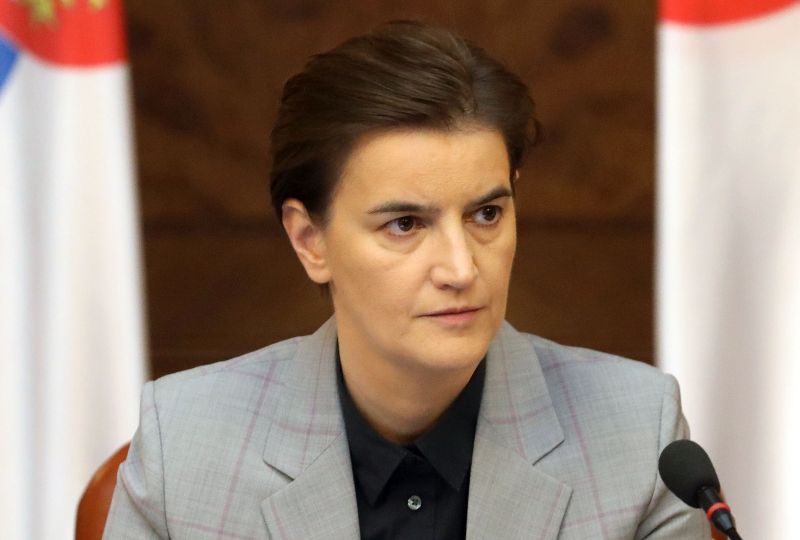Prime Minister Ana Brnabic stated that if the number of patients with coronavirus does not start to drop, a curfew will be reintroduced in Belgrade, as well as the restrictive measures that were in force in March and April and the closure of the country.
- Serbia
Get to know Serbia
- Citizens
Culture and science
Health services
Pension and disability insurance
- Business
Employment
Economy
- Media
- Government
- Contact
Keep in touch
Keepin touch
Whether you have a question, comment, suggestion or any problem in the purview of the government, send us your message and we will try to respond as soon as possible. If your problem is not in our purview, we will forward your message to the relevant institution.
Discipline crucial for curbing spread of coronavirus
Last night, Brnabic told the BBC radio show Newshours that the proof that the protests have nothing to do with the curfew is that the government had never made such a decision.
A ban on the operation of service facilities from 9 pm to 6 am was the first official decision we made. Until then, everything was just discussed and no final decision was made, the Prime Minister explained.
Brnabic also pointed out that Serbia was one of the countries that had the most success in the fight against infectious disease COVID-19 in March and April, but also that it had almost the strictest measures in Europe during the first wave.
The country was closed, we had curfew, sometimes from Thursday night to Monday morning, and that gave results. However, one cannot live and work that way. We expected the second wave in the fall, but, in fact, the first wave never ended.
The Prime Minister pointed out that, as soon as such type of ban was lifted, the numbers started to grow again, and pointed out that this time the government tried different tactics, that is, to appeal to citizens to be disciplined, wear face masks and hold distance.
Speaking about the elections and that many criticise the government that the worsening of the epidemic is a direct result of the holding of the elections, Brnabic said that the elections was something that had to be done and that other countries also held elections, such as South Korea, France and Bavaria in Germany.
Asked about negotiations with Kosovo's leaders and how optimistic she is that some kind of solution will be reached and whether Serbia could recognise Kosovo, she said she is happy that negotiations are continuing because that is something Serbia has always called for.
-
 Belgrade, 25 February 2023
Belgrade, 25 February 2023Four people die as result of coronavirus
-
 Belgrade, 12 November 2022
Belgrade, 12 November 2022Five persons die of coronavirus over past 24 hours
-
 Belgrade, 11 November 2022
Belgrade, 11 November 202260 new cases of coronavirus confirmed
-
 Belgrade, 9 October 2022
Belgrade, 9 October 20221,063 more new cases of coronavirus
-
 Belgrade, 8 October 2022
Belgrade, 8 October 202211 people die as result of coronavirus infection
-
 Belgrade, 9 August 2022
Belgrade, 9 August 2022Number of new cases of coronavirus growing
-
 Belgrade, 8 August 2022
Belgrade, 8 August 20226,498 new cases of coronavirus reported
-
 Belgrade, 7 August 2022
Belgrade, 7 August 2022More than 4,000 new cases of coronavirus in Serbia
-
 Belgrade, 6 August 2022
Belgrade, 6 August 2022Coronavirus claims 13 more lives
-
 Belgrade, 3 August 2022
Belgrade, 3 August 202217 people die as a result of COVID-19

